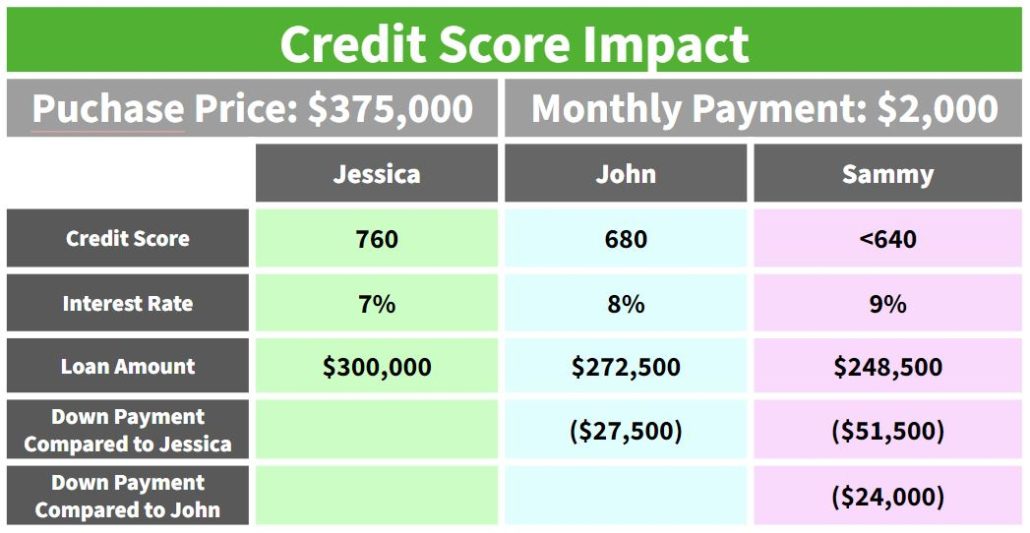Building wealth is all about leverage in real estate investing. But what exactly is it, and how can you use it correctly?
If you look at investing, it’s all about using other people’s money. It’s all about leverage.
Understanding leverage and using it correctly, is the key to unlocking the profits of real estate investing.
Why Leverage Matters
Leverage is the term we use for using someone else’s money (typically in the form of loans) to make a profit for yourself.
Frequently, you will also use a small amount of your own money. But leverage—the opportunities you can access with external funds—is what makes real estate investing accessible regardless of your personal wealth.
Additionally, leverage allows investors to enter the market quickly, without needing to wait 5 years to save up for a downpayment.
If you know how to get money from others and use it to strategically turn a profit for yourself, you’ll be able to build income out of nearly nothing.
Different Kinds of Leverage
Leverage comes in many forms:
- Financial gifts
- Loans
- Mortgages
- Liens
- And more!
The most common form of real estate leverage is probably a classic mortgage. However, how you use that mortgage (and what you look for in a property) can make all the difference.
Looking for undervalued properties that owners are looking to sell quickly typically maximizes the ARV (After Repair Value). By getting a mortgage to cover the cost of the purchase price and leveraging those funds, you can fairly easily increase the value of the property and turn a profit on the resale (or rental).
Additionally, if you’re looking to buy a property that’s appraised under the market value, lenders are more likely to cover 100% of the purchase price (and sometimes a large piece of the renovations as well).
How to Start Building Wealth as a New Investor
1. Don’t let emotions take over your investing.
Investing is all about the numbers. Don’t give up when things are moving slowly, and don’t overextend yourself by becoming greedy.
Be strategic at every level—from the properties you pursue to the contractors you use.
2. Be persistent.
You don’t need $500,000 in savings to make your first deal. You just need to be a doer. This business is all about grit and follow through.
3. Look for the right leverage.
Not every loan is going to fit your needs. Once you have a property or project in mind, look for leverage that specializes in those areas.
Do you need DSCR? Have you considered the BRRRR strategy? What about hard money?
4. Run through examples with an expert.
Both at The Cash Flow Company and Hard Money Mike (our sister company), we want you to feel confident and educated.
One of the first things we do when new investors come to us is sit down and run through some sample properties. This helps you understand the different fees you should look out for.
Different areas have different fees, regulations, and options, and talking to an expert can greatly benefit you as a new investor.
5. Dive in.
The only way to start building wealth is to, well, start.
It’s typically easiest to begin with a straight-forward fix-and-flip. But be on the lookout for properties of all kinds. Check your area every day and get in contact with realtors or wholesalers.
As a new investor, it might take you a few tries before someone takes you seriously, but you need to go for it.
6. Commit to the business.
Real estate investing (even if you see it as a personal hobby) is ultimately a business. Don’t cut corners or only renovate with the cheapest fixtures. Every choice you make is an opportunity to build a good reputation.
Be thoughtful and hold yourself to a high standard.
Fight Fear with Knowledge
One of the biggest struggles new investors face is fear.
It can feel like a huge leap to jump into the investment game, and learning is a great antidote to those nerves.
One of our goals as a company is to make investing accessible and less frightening through education. Our YouTube channel provides free lessons that walk you through the different aspects of real estate investing.
Getting started can be daunting, but if you take the time to educate yourself, find a mentor, and find leverage, you have nothing to fear.
How Far Can Leverage Take You?
In the current market, successful investing over the next few years is likely to have a huge payoff.
Many real estate investors are even able to accumulate hefty retirement funds strictly through real estate investing in addition to annual income.
There are so many strategies you can use to build income with leverage:
- Fix and flip (buy, fix, sell)
- Renting (buy, fix, rent)
- House hacking (buy, fix half, rent fixed half, fix other half with income from first half)
Even new investors can make quick progress if they use leverage wisely.
Recently, we had an investor from a smaller community who has already purchased 8 properties this year with little-to-no money down on each. They’ve been refinanced, rented, and are building her income. By the end of the year, she’ll probably have purchased anywhere from 10-15 properties. And she’s accomplished this by using other people’s money.
Of course, some markets are harder to work in and some communities move a little slower.
But if you are committed to the game, and you pursue the best loans, you can build a successful business without emptying your pockets.
It’s all about finding the right leverage and using it wisely.
We’re Here to Help!
We have so many tools and resources designed specifically to help you on your investment journey.
We’re happy to help you find the right properties, loans, etc., and we’ll help you feel confident about your decisions.
If you’re interested in discussing a loan or you simply want to talk to someone who has been in the business for a long time, reach out to us at Info@TheCashFlowCompany.com or fill out a contact card.
Getting started as a new investor can be daunting, but with the right knowledge and the right leverage, there’s nothing holding you back.











